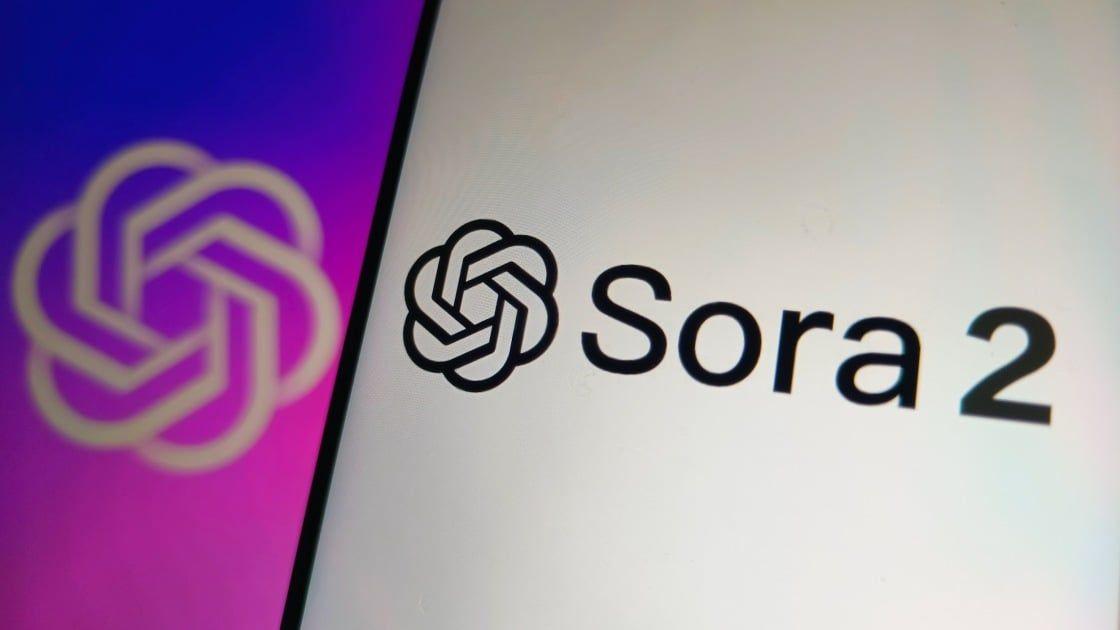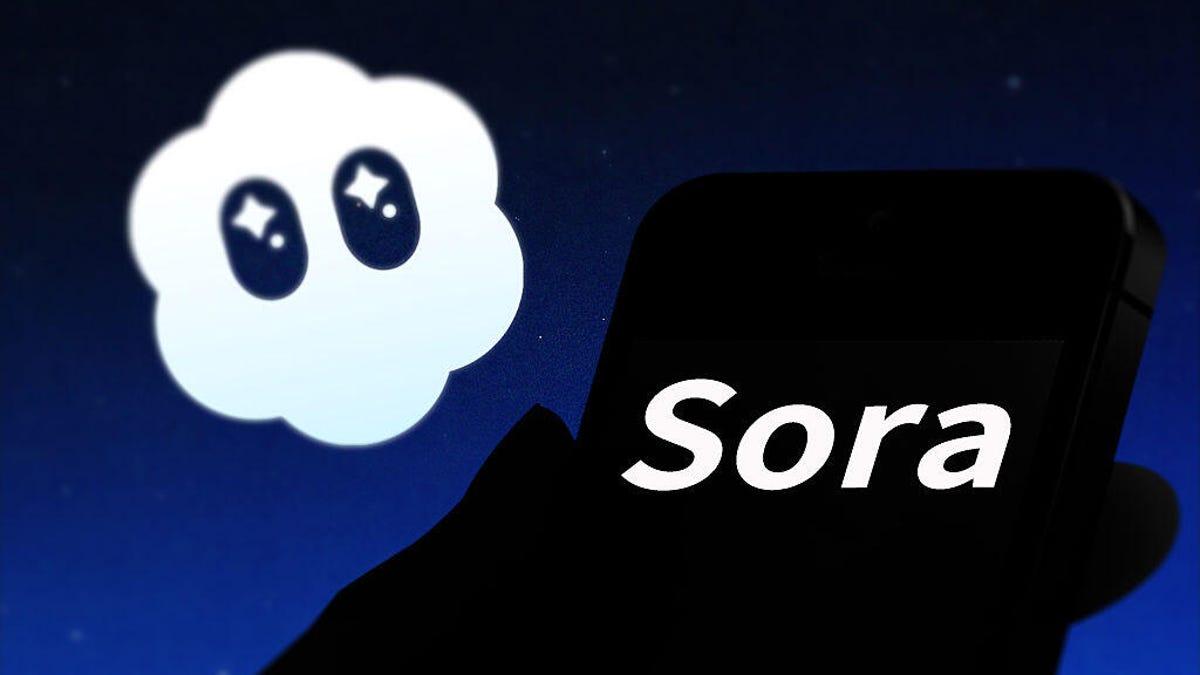OpenAI's Sora App: Facial Data Security and Account Deletion Concerns
2 Sources
2 Sources
[1]
How Safe Is Your Facial Data With OpenAI's Sora App?
When he's not battling bugs and robots in Helldivers 2, Michael is reporting on AI, satellites, cybersecurity, PCs, and tech policy. Don't miss out on our latest stories. Add PCMag as a preferred source on Google. OpenAI's Sora app has gone viral for letting users create AI-generated videos of themselves. But what does it do with your facial data? Can you delete your account if you change your mind? OpenAI confirms that it does need to store your facial and audio data for Sora's Cameo feature, which can create disturbingly real "deepfakes" of your likeness, including your voice. However, the company has committed to deleting users' facial and audio data for Cameo if they cancel their account. "Uploaded cameos are kept by OpenAI to use for new Sora videos, and are encrypted at rest and in transit," OpenAI tells PCMag. "Uploads are automatically deleted within 30 days after users delete them. You can see our retention policies here." Still, that policy doesn't specifically address the Sora app. Rather, it somewhat vaguely says: "We'll retain your Personal Data for only as long as we need in order to provide our Services to you, or for other legitimate business purposes such as resolving disputes, safety and security reasons, or complying with our legal obligations." However, OpenAI has indicated that it plans to tightly control the Cameo feature. "Only you decide who can use your cameo, and you can revoke access at any time," the company wrote in a separate blog post. Many users have already found that the Cameo feature can be used for amusing effects, especially to lampoon OpenAI CEO Sam Altman. But the company concedes there's a small chance Sora can create rule-breaking videos, including sexual deepfakes featuring a user's likeness, despite the safeguards in place. It also turns out that trying to shut down your Sora account comes with a cost. One user posted a screenshot showing that OpenAI will also delete your ChatGPT account if you try and shut down your Sora presence. This seems to be because Sora requires you to register with an OpenAI account. (Similar to how Threads is linked to Instagram.) OpenAI's message about the Sora account deletion adds: "You cannot reuse the same email or phone number for a new account. If you've been using ChatGPT with the API, this access will also be deleted." We've reached out to OpenAI for comment about the account deletion policy for Sora, and we'll update the story if we hear back. However, it appears to align with the company's existing policy, which revokes access to all OpenAI services if the user chooses to delete their account. "For security reasons, once you delete your account, you may not re-sign up for an account with the same email address," the policy adds. UPDATE: OpenAI says: "We're committed to giving people clear ways to manage their OpenAI accounts, and you can delete yours today. We're also working on a way to delete your Sora account separately, and we'll let people know as soon as that's available." Disclosure: Ziff Davis, PCMag's parent company, filed a lawsuit against OpenAI in April 2025, alleging it infringed Ziff Davis copyrights in training and operating its AI systems.
[2]
OpenAI's New Sora App Makes Account Deletion Permanent, Including for ChatGPT - Decrypt
Deleting an account on OpenAI's new Sora 2 app isn't just a button tap -- it's a point of no return. OpenAI warns in its terms of service that once a user deletes their Sora profile, all linked data, including conversation history and API usage across ChatGPT and Sora, is permanently erased. That level of finality matters as Sora 2 has mushroomed online alongside OpenAI's push into new products like an AI agent shopping feature with Shopify. According to the TOS, once a user's email or phone number is removed, the account can never be reused. The company hasn't publicly explained why Sora's deletion rules extend to ChatGPT accounts, but it said it's working on separating the two systems. "We're committed to giving people clear ways to manage their OpenAI accounts, and you can delete yours today," OpenAI said in a statement. "We're also working on a way to delete your Sora account separately, and we'll let people know as soon as that's available." The current terms of service for Sora 2, however, call deleting an account permanent and cannot be undone. "All your data, including profile, conversations, and API usage across ChatGPT and Sora, will be removed," Sora 2's terms explained. "You cannot reuse the same email or phone number for a new account. If you've been using ChatGPT with the API, this access will also be deleted." OpenAI first introduced Sora in February 2024 as a browser-based feature inside ChatGPT. With the release of the standalone Sora 2 app on Tuesday, access shifted from web to mobile. The app still requires an invite code because it hasn't been rolled out to the general public. Unlike the first Sora model, the invite-only Sora 2 on iOS introduced "cameos" that let users insert themselves into AI-generated scenes after a quick video to verify likeness and voice. On its first day, users produced NSFW sex-toy ads, anime romance parodies, and deepfakes of OpenAI CEO Sam Altman. While OpenAI works to decouple Sora 2 from ChatGPT, deletion remains irreversible -- meaning users who delete by mistake could lose not only their AI-generated videos but also access to OpenAI's flagship chatbot. Tying Sora 2 to ChatGPT raises the stakes for anyone testing Sora's new features, as critics argue OpenAI is drifting from its mission of creating safe, broadly beneficial AI, toward memes and viral entertainment.
Share
Share
Copy Link
OpenAI's new Sora app raises questions about facial data security and introduces a strict account deletion policy that affects both Sora and ChatGPT users.

OpenAI's Sora App: A New Frontier in AI-Generated Videos
OpenAI's recently launched Sora app has taken the internet by storm, allowing users to create AI-generated videos featuring their own likeness. The app's Cameo feature, which can produce remarkably realistic 'deepfakes' of users, including their voice, has sparked both excitement and concern among the public
1
.Data Security and Storage Policies
As users flock to try out Sora's capabilities, questions about data security have come to the forefront. OpenAI has confirmed that it needs to store users' facial and audio data for the Cameo feature to function. However, the company has committed to implementing strict data protection measures:
- Uploaded cameos are encrypted both at rest and in transit.
- User data is automatically deleted within 30 days after users remove their uploads.
- OpenAI emphasizes that only the user can decide who can use their cameo, with the ability to revoke access at any time
1
.
Account Deletion: A Point of No Return
Perhaps the most controversial aspect of Sora's rollout is its account deletion policy. Users have discovered that deleting a Sora account comes with significant consequences:
- Deletion of the Sora account also results in the removal of the associated ChatGPT account.
- All user data, including profile information, conversations, and API usage across both Sora and ChatGPT, is permanently erased.
- Users cannot reuse the same email or phone number to create a new account
2
.
This policy has raised concerns among users who may want to try Sora without jeopardizing their existing ChatGPT accounts. OpenAI has acknowledged this issue and stated that they are working on a solution: 'We're also working on a way to delete your Sora account separately, and we'll let people know as soon as that's available'
1
.Related Stories
Potential Risks and Safeguards
While many users have found creative and amusing ways to use Sora's Cameo feature, OpenAI acknowledges that there are potential risks. Despite implemented safeguards, there remains a small chance that Sora could create rule-breaking videos, including sexual deepfakes featuring a user's likeness
1
.The Future of Sora and OpenAI's Direction
The launch of Sora 2 as a standalone app marks a significant step in OpenAI's product diversification. However, some critics argue that this move, along with other recent developments like the AI agent shopping feature with Shopify, indicates a shift in the company's focus. There are concerns that OpenAI may be drifting from its original mission of creating safe, broadly beneficial AI towards more commercially-driven, viral entertainment products
2
.References
Summarized by
Navi
[1]
Related Stories
OpenAI's Sora 2: Revolutionizing AI Video Generation with New Social App
29 Sept 2025•Technology

Public Citizen Demands OpenAI Withdraw Sora 2 Over Deepfake and Democracy Concerns
11 Nov 2025•Policy and Regulation

OpenAI's Sora Video Generator Raises Safety Concerns as AI-Generated Content Becomes Indistinguishable from Reality
08 Nov 2025•Technology

Recent Highlights
1
ByteDance's Seedance 2.0 AI video generator triggers copyright infringement battle with Hollywood
Policy and Regulation

2
Demis Hassabis predicts AGI in 5-8 years, sees new golden era transforming medicine and science
Technology

3
Nvidia and Meta forge massive chip deal as computing power demands reshape AI infrastructure
Technology





